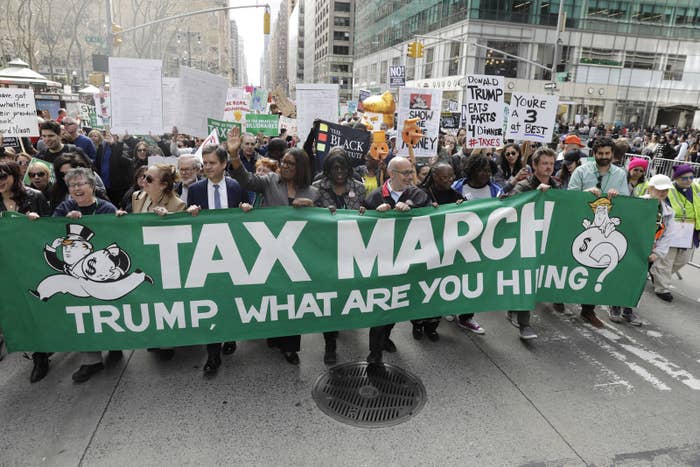
A federal judge on Friday dismissed a lawsuit seeking President Trump’s personal income-tax records, writing that the court doesn’t have the authority to force the IRS to release the records.
Trump has refused to release his tax returns in a break with decades of practice by major-party presidential nominees and past presidents. The Electronic Privacy Information Center, a DC-based group that advocates for government transparency, filed a lawsuit in April arguing that the IRS should produce the returns under the federal Freedom of Information Act.
US District Judge James Boasberg in Washington, DC, wrote in an opinion on Friday that there were only two routes for the public to get Trump’s tax returns from the IRS, and the court didn’t have the power to make either one happen: Trump would have to give permission, or Congress’s Joint Committee on Taxation could approve the release under certain limited circumstances.
“What Plaintiff wants in this case is to peer into another person’s income-tax records. Although the Court has no reason to doubt EPIC’s assertion that the return information on this particular individual — President Trump — would be of interest to the public, that fact does not give the organization a viable legal case,” Boasberg wrote.
Marc Rotenberg, president of EPIC, said in an email to BuzzFeed News that the group “will continue to pursue the release of President’s Trump’s tax records and related evidence of financial relations with the Russian government.”
Ian Prior, spokesman for the Justice Department, said in a statement that, "The Department of Justice is pleased that the Court agreed that the Plaintiff had no case. It’s unfortunate that the Plaintiff had to force the government to use taxpayer resources to learn that.”
An IRS representative did not immediately return a request for comment.
Federal law limits the disclosure of personal tax returns, and Treasury Department regulations require anyone requesting another person’s tax records to get that person’s consent. The IRS said that because EPIC did not submit documentation that they had Trump’s consent, the center’s Freedom of Information Act request was invalid.
EPIC argued that the IRS did have the authority to release tax returns to correct misstatements in the public domain, and pointed to conflicting reports about what the returns would show about Trump’s financial ties to Russia and his history of being audited by the IRS. The release of the tax returns would provide conclusive answers, the group said.
But Boasberg wrote that even if there were misstatements, the IRS would still need approval from the Joint Committee on Taxation, and that there was nothing in the Freedom of Information Act requiring the agency to seek that permission.
“Without the Committee’s authorization, this potential exception to the consent requirement could not possibly apply, and EPIC’s litigating this case remains premature,” Boasberg wrote.
UPDATE
Updated with a response from a Justice Department spokesperson.

